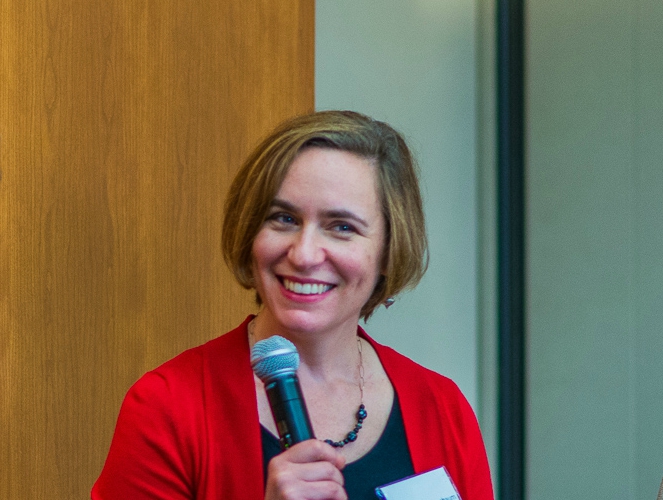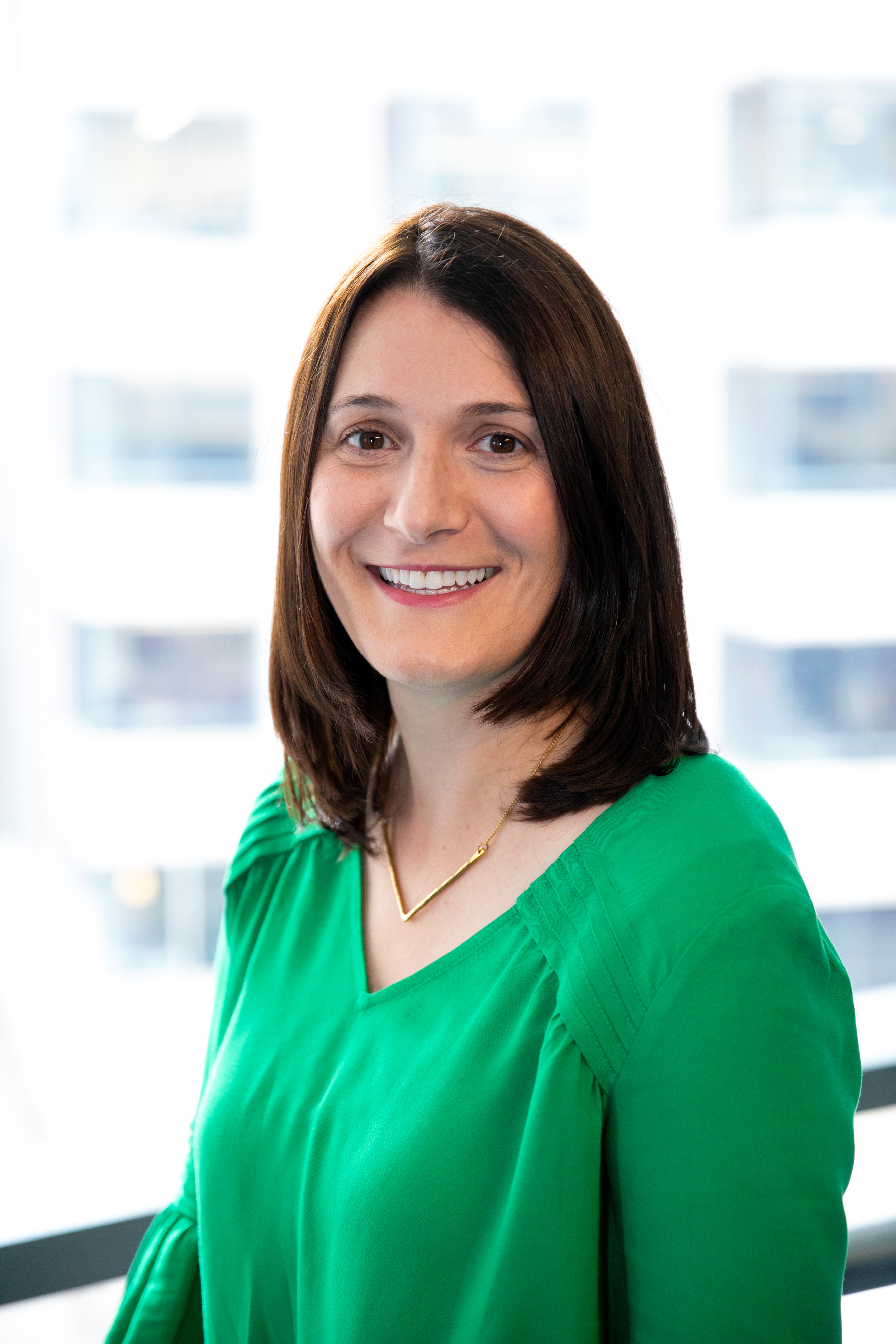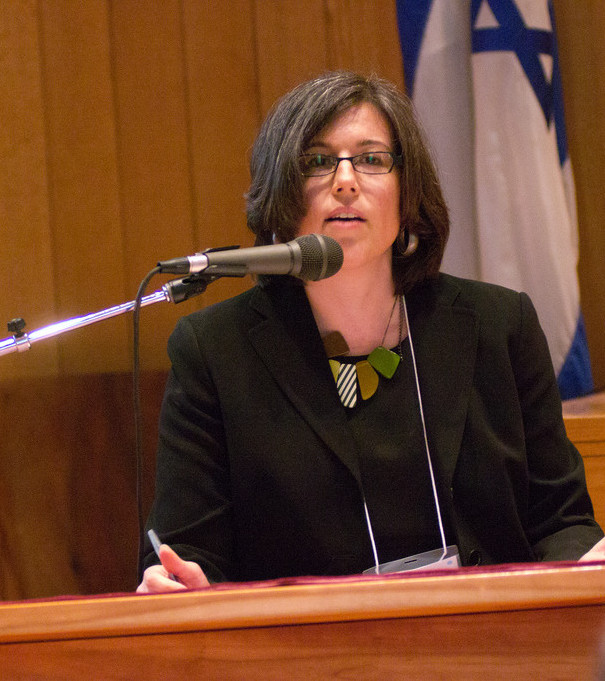This year’s 27 Schusterman Foundation Fellows include three Boston-based leaders participating in the highly selective 18-month leadership program. They are: Judith Rosenbaum, CEO of Jewish Women’s Archive (JWA), Aviva Klompas, associate vice president of Israel and global Jewish citizenship at CJP, and Karla Van Praag, founder and executive director of JOIN for Justice. The Schusterman Foundation has recognized these women as “exceptional leaders committed to driving change in their organizations, the Jewish world and beyond.”
Rosenbaum, Klompas and Van Praag recently spoke to JewishBoston about how they anticipate the fellowship will enhance their leadership roles. They further reflected on beginning the fellowship in a pandemic. As Klompas noted, “In 2020, the only constant is that we’re in constant change.” Among the many features that the foundation has brought online are the program’s cohort meetings. For the moment, in-person programming has gone virtual.

Through Zoom, Rosenbaum expects to know her cohort in a new way. Whether virtual or in-person, she said she sees the fellowship as “an opportunity to invest in my leadership personally and broadly. I’ve been in my current role at JWA for six years. The first five years, I was figuring out aspects of the job. I’m entering the next phase of taking my role to the next level, making it sustainable and modeling feminist leadership more broadly. Add to this moment a global crisis, which sharpens everything and makes it an important time to figure out how to lead.”
Van Praag has been at the helm of JOIN for Justice for 12 years and shepherded it from a local organization that trains young adults to a national one connecting Judaism with social justice initiatives. Service learning has driven much of Van Praag’s career. In Washington, D.C., she worked for AmeriCorps, where she mentored and tutored children. When she relocated to Boston in the early 2000s, she helped synagogues organize around social justice issues as a staff member of the Jewish Community Relations Council of Greater Boston. It was one of her first forays into the Jewish community.
As for joining the 2020-2021 cohort of Schusterman Fellows, Van Praag is looking forward to continuing to develop her leadership skills. Like Rosenbaum and Klompas, she anticipates that she will think through ideas, build relationships and expand her network with her cohort.

Klompas also looks forward to growing a network of Jewish leaders through the fellowship connections. “This is an opportunity to find a community of like-minded individuals who are incredibly motivated to inspire positive change,” she said. “It is humbling to read the bios of these smart, capable and accomplished people. It is energizing to be in this group. For me, the fellowship’s focus is to build my capacity to lead with courage, authenticity and vulnerability. How will we dream and collaborate and innovate to repair what’s broken and build something new?”
Building something new in an unprecedented pandemic presents both a challenge and an opportunity for growth. Rosenbaum noted that much of JWA’s programs were already online. “We were able to pivot quickly and start programs like the Quarantine Book Club and a virtual history class, and to document this moment using our Aperture app,” she added. Rosenbaum said the pandemic has changed things for everyone.
Van Praag concurred and noted: “It is an incredibly challenging time for our world. We’re in a crisis like never before. But our folks are out there building visual aids, networking to connect people and organizing against racial injustice. We have supported leaders to organize remotely. We think about how we involve people when the world is upside down and not meeting face-to-face.”

She further noted that this past May, JOIN for Justice presented an online program “teaching people across the country to advocate for issues they care about.” She added: “We called it ‘Don’t Kvetch, Organize.’ We updated the program to organize in this particular moment and during this central time for civil rights in our country. The Boston-based JOIN Fellowship is now online, as is program training for clergy and rabbinical students. Having the clergy program online now allows for people from across the country to participate.”
For Klompas, 2020 has turned out to be the year in which the world has witnessed tremendous suffering and uncertainty and has also faced “this overdue confrontation with systemic racism.” She said: “You see the amount of need physically, economically and socially. When I applied to the fellowship in 2019, it felt like more of a personal journey with my cohort. And now there is such a collective need and opportunity to be in a cohort, to be on a platform. To grow in those areas feels daunting, but it is also a relief.”
One of the activities the Schusterman cohort did in their recent virtual meetup was to imagine where their organizations would be in June 2021. To arrive at an answer, Klompas thought about the four domains of leadership—mental, emotional, physical and spiritual. Van Praag reflected on “how I navigate the next period in our society. How do organizations adapt and communities face the challenges in front of us? How do we see economic crises and recessions? The cohort will be a support network for me as we figure it out together.”
Rosenbaum said she planned to do more writing in the coming year in support of a plan. She said she will be considering questions such as, “What are the places we need to grow? Work-life balance is such a big question. How do we keep ourselves healthy and sane to lead organizations? I’m home more; my time looks different. I’m trying to do things in the same space. I don’t have the answers at the moment, but I’m thinking about these issues.”



